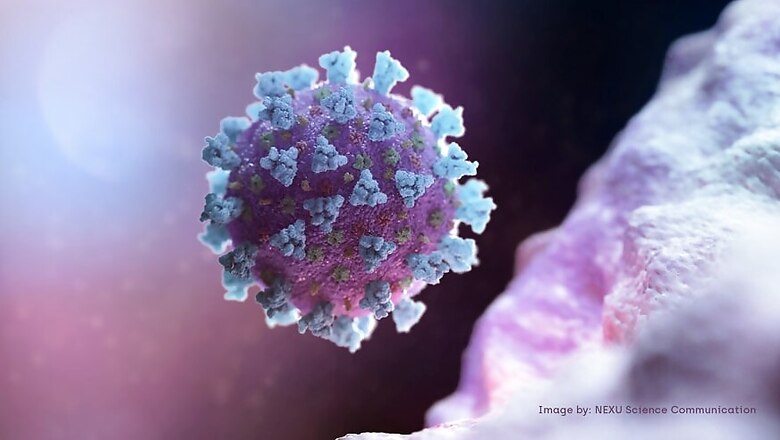
views
There has been a debate about how long the Coronavirus, or COVID-19 virus survives on different surfaces. That can now be put to rest. It turns out that the Coronavirus can stay on plastic and stainless steel for as long as three days and happens to really like these materials. Where can you find these materials in great quantity? In your homes. In hospitals. And even public transport. The researchers at the National Institutes of Health virology laboratory in Hamilton, Montana have been trying to find an answer to how long the Coronavirus can stick to different commonly used materials and surface types.
At the time of writing this, there are 125254 confirmed cases of Coronavirus around the world. China continues to have the maximum, with 80,932 in mainland China, 129 in Hong Kong and 10 in Macau. Italy now has 12,462 cases while Itan now has 9,000 reported cases while South Korea has 7,869 cases and France has 2,284 cases. The US has reported 1,312 cases while there are 60 confirmed cases in India. “We don’t know if you can pick up Covid-19 from contaminated surfaces or inanimate objects at this point. That’s the bottom line,” says Marilyn Roberts, a microbiologist at the University of Washington School of Public Health, reports the MIT Technology Review. “Virus stability in air and on surfaces may directly affect virus transmission, as virus particles need to remain viable long enough after being expelled from the host to be taken up by a novel host,” according to Vincent Munster and his team at the National Institutes of Health virology laboratory in Hamilton, Montana.
Have You Read?
Noodles & Pandas: Chinese Social Media Users Are Talking About Coronavirus in Secret Lingo
WeChat is Censoring Coronavirus Keywords, Because China Doesn’t Like Bad Press?
China Has Made Spreading Rumours on Social Media A Crime as it Battles The Coronavirus Outbreak
While the Coronavirus likes stainless steel and plastic the most, it doesn’t seem to like copper that much—it is gone from copper in around 4 hours. These findings mean that courier packages, smartphone cases and even containers can become a rather nice host for the Coronavirus as it plots its next move. Health authorities are recommending generous use of hand sanitizers to keep your hands clean, and a regular wipe-down of the surfaces around you could also be quite important. Also, wash your hands regularly with soap, and avoid touching your face with your hands.
Earlier, the Ruhr-Universität Bochum in Germany had pointed out that viruses can remain on surfaces and retain their infectious tendencies for up to nine days, in a room temperature environment. On average, they survive between four and five days. “Low temperature and high air humidity further increase their lifespan,” said Professor Günter Kampf from the Institute of Hygiene and Environmental Medicine at the Greifswald University Hospital. Some really high profile Coronavirus cases have emerged in the past few days, including UK's health minister Nadine Dorries as well as actors Tom Hanks and wife Rita Wilson as well as
Now you can probably cross out shopping on Amazon and other shopping websites for the time being, and add that to the list of using sanitizers, hand soap and not touching your face.
















Comments
0 comment